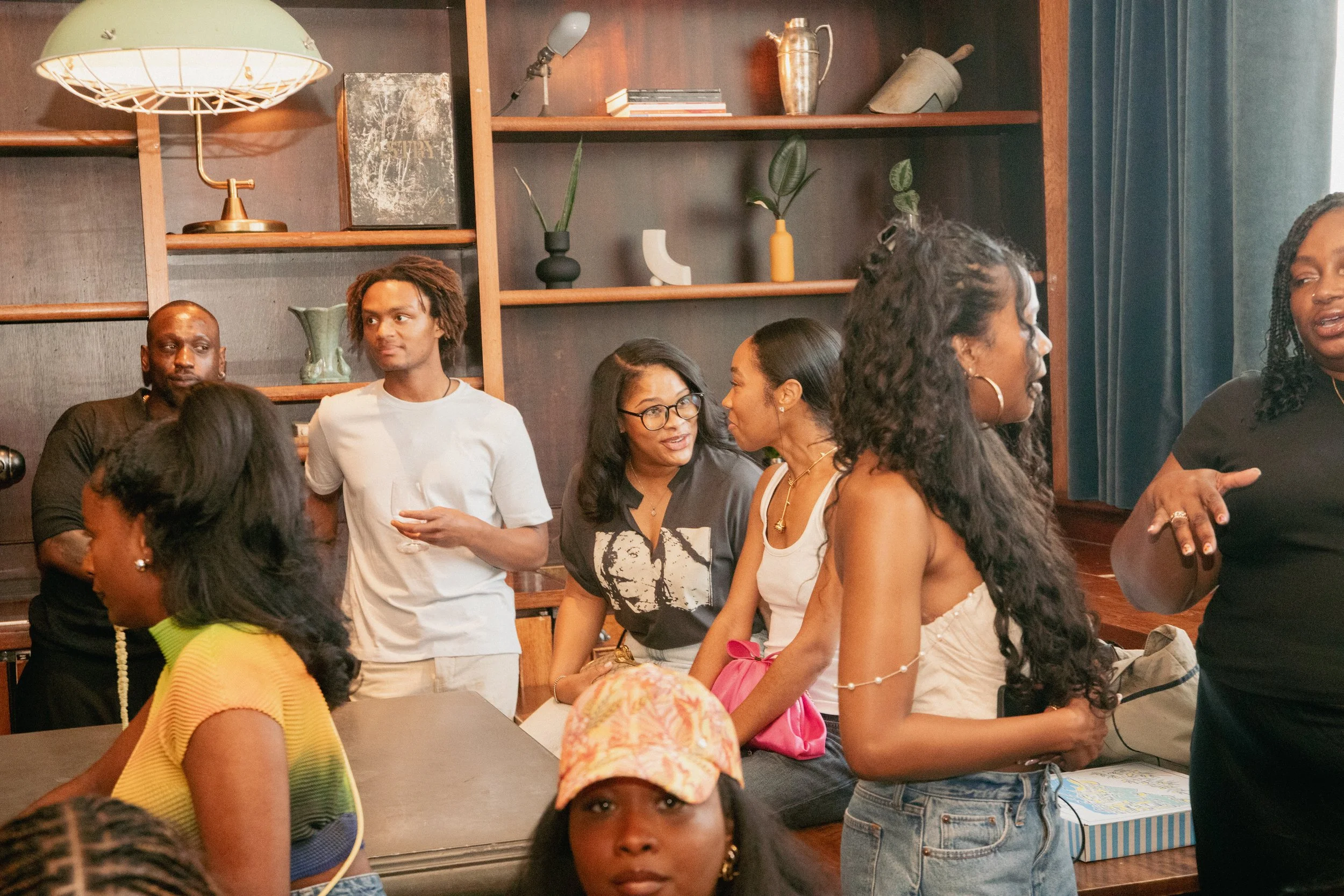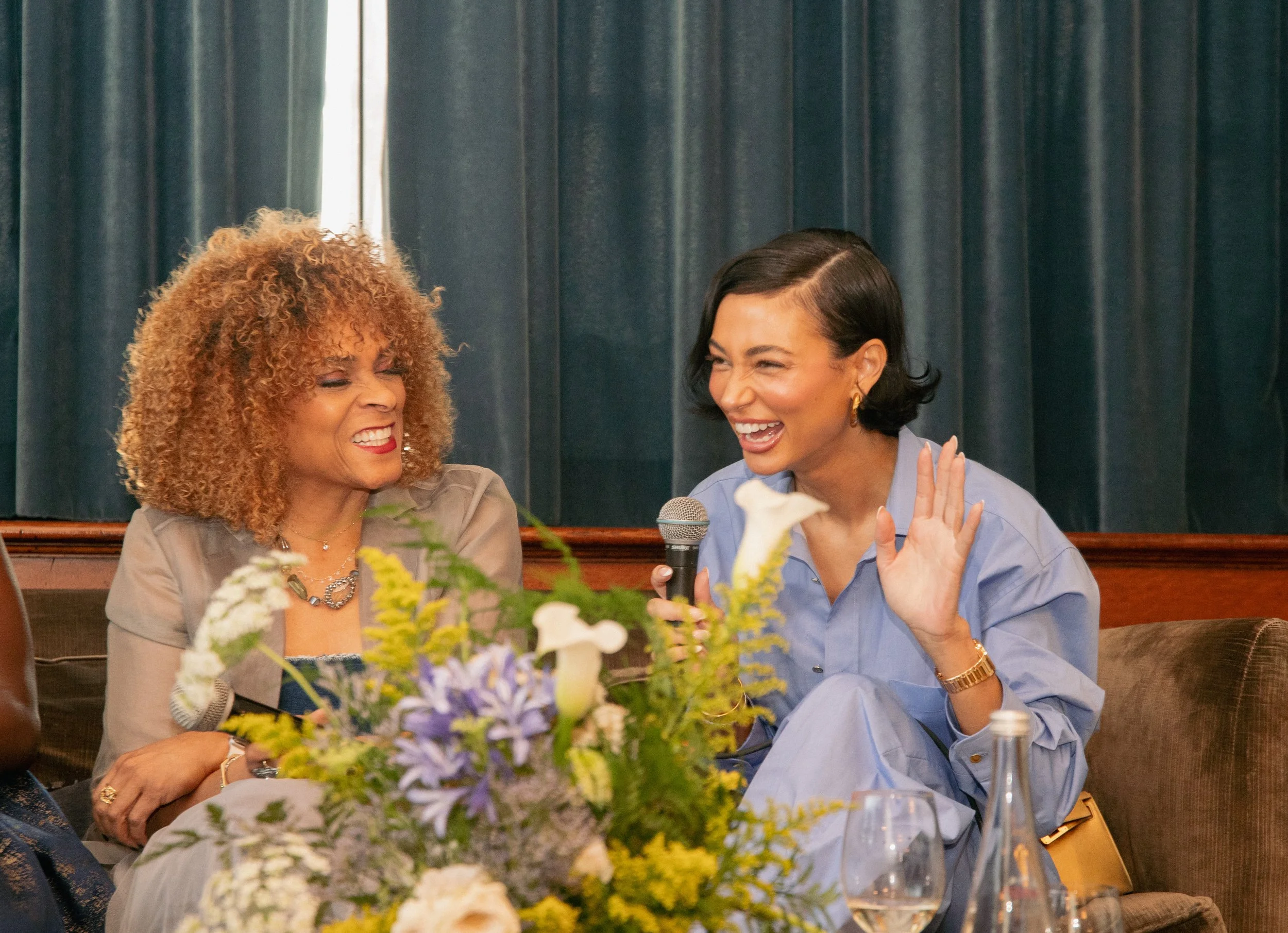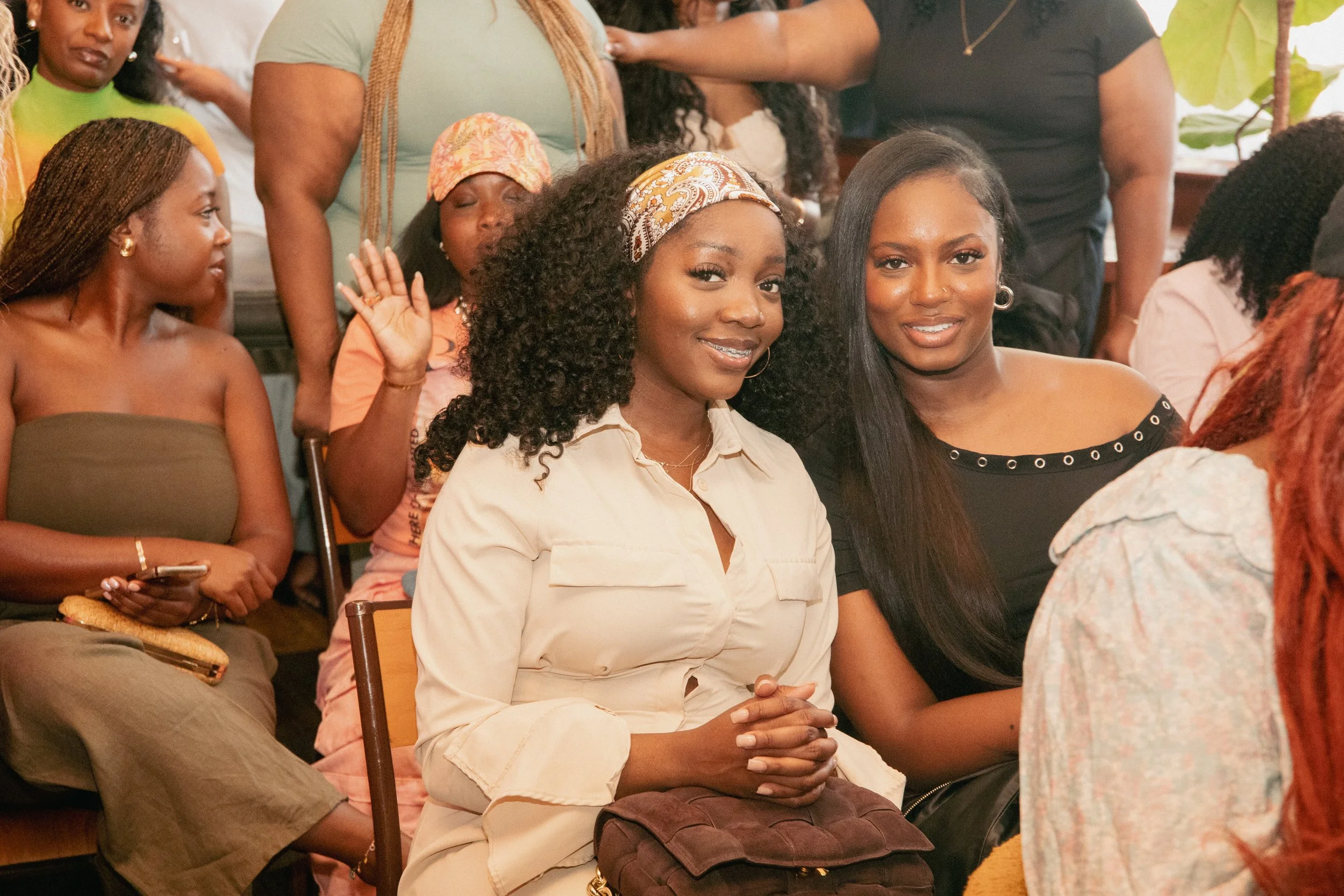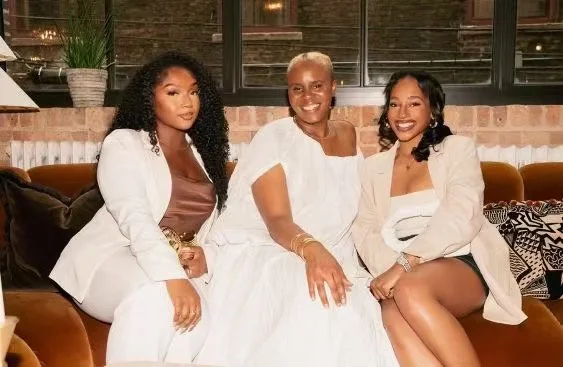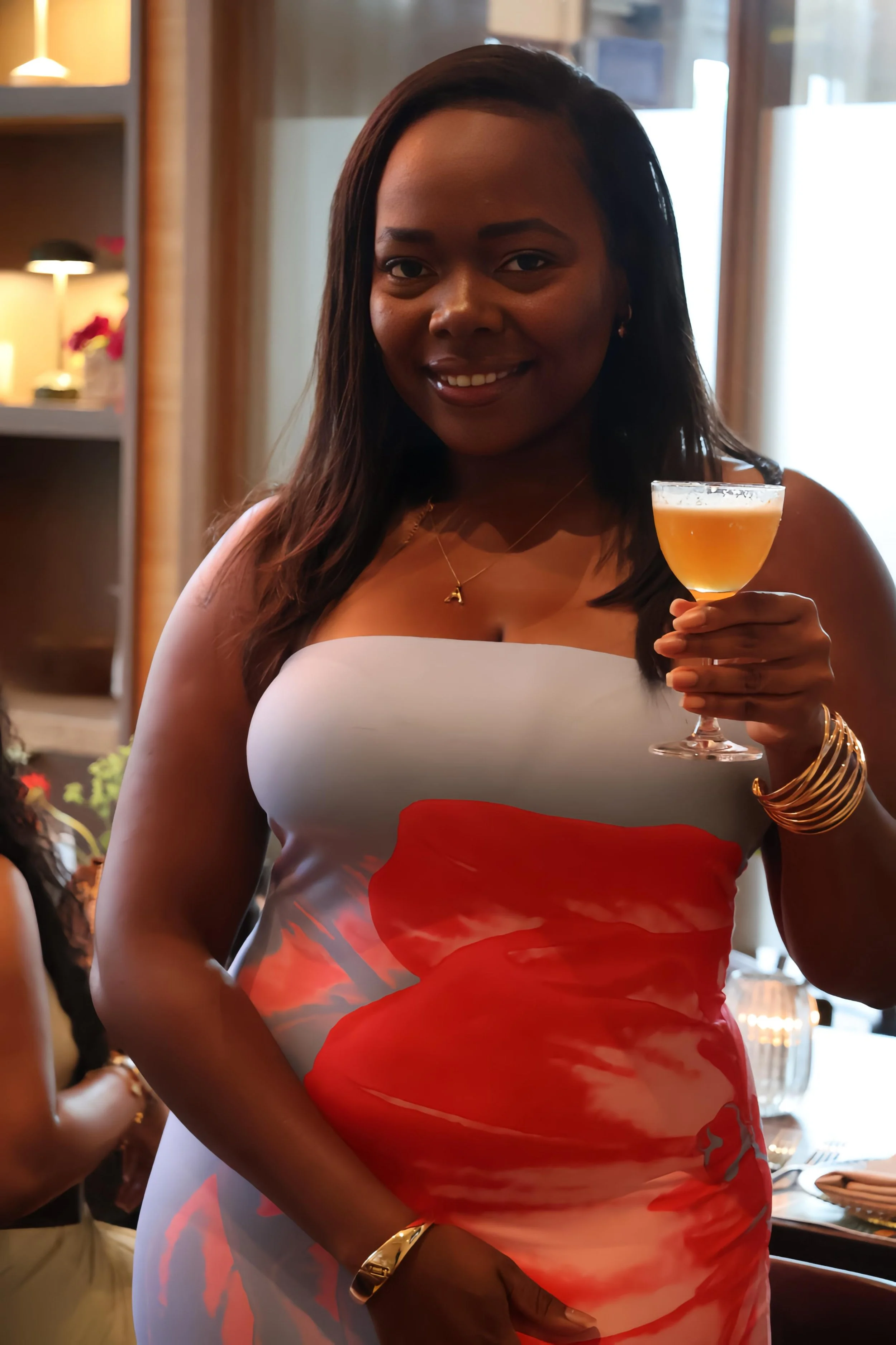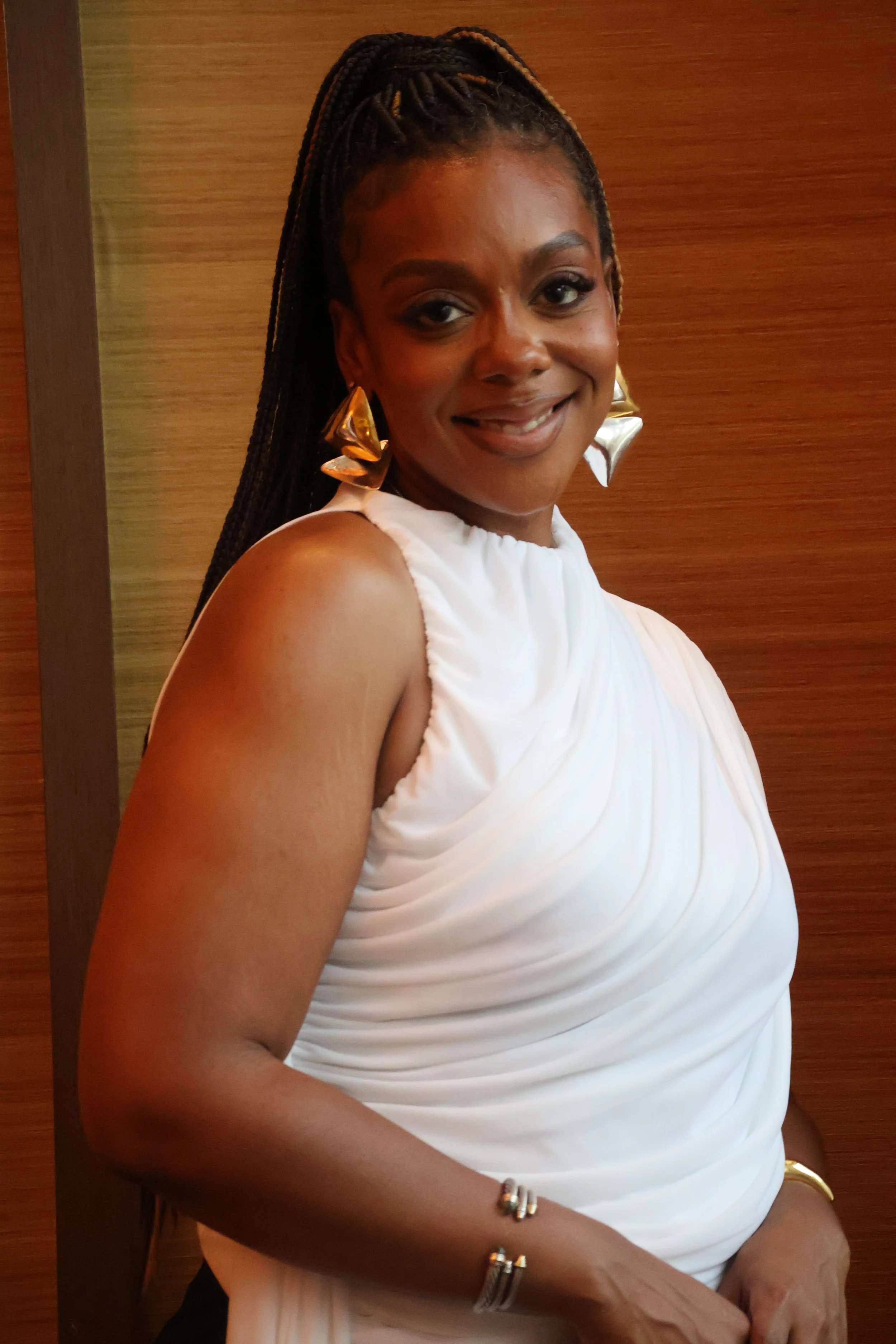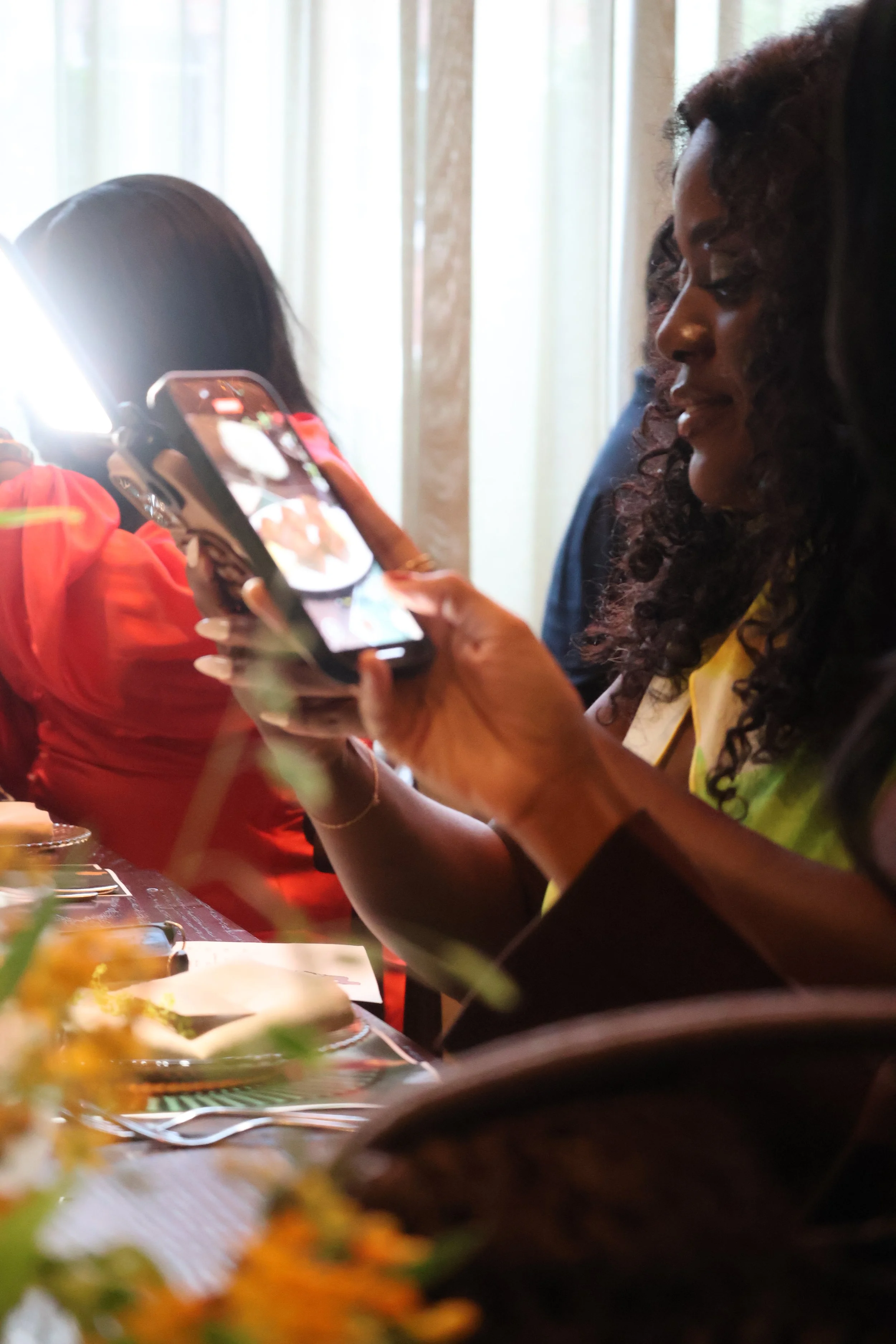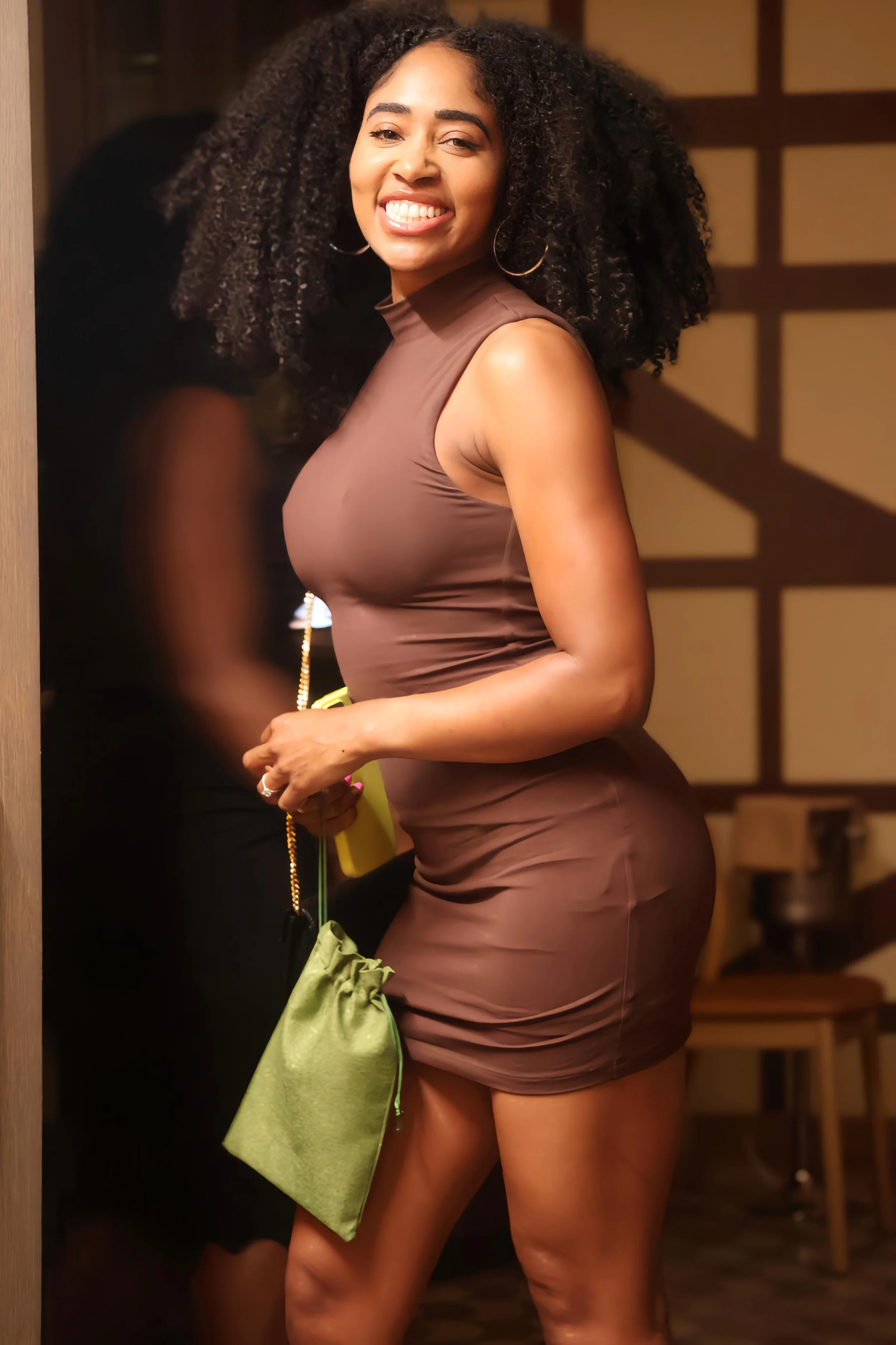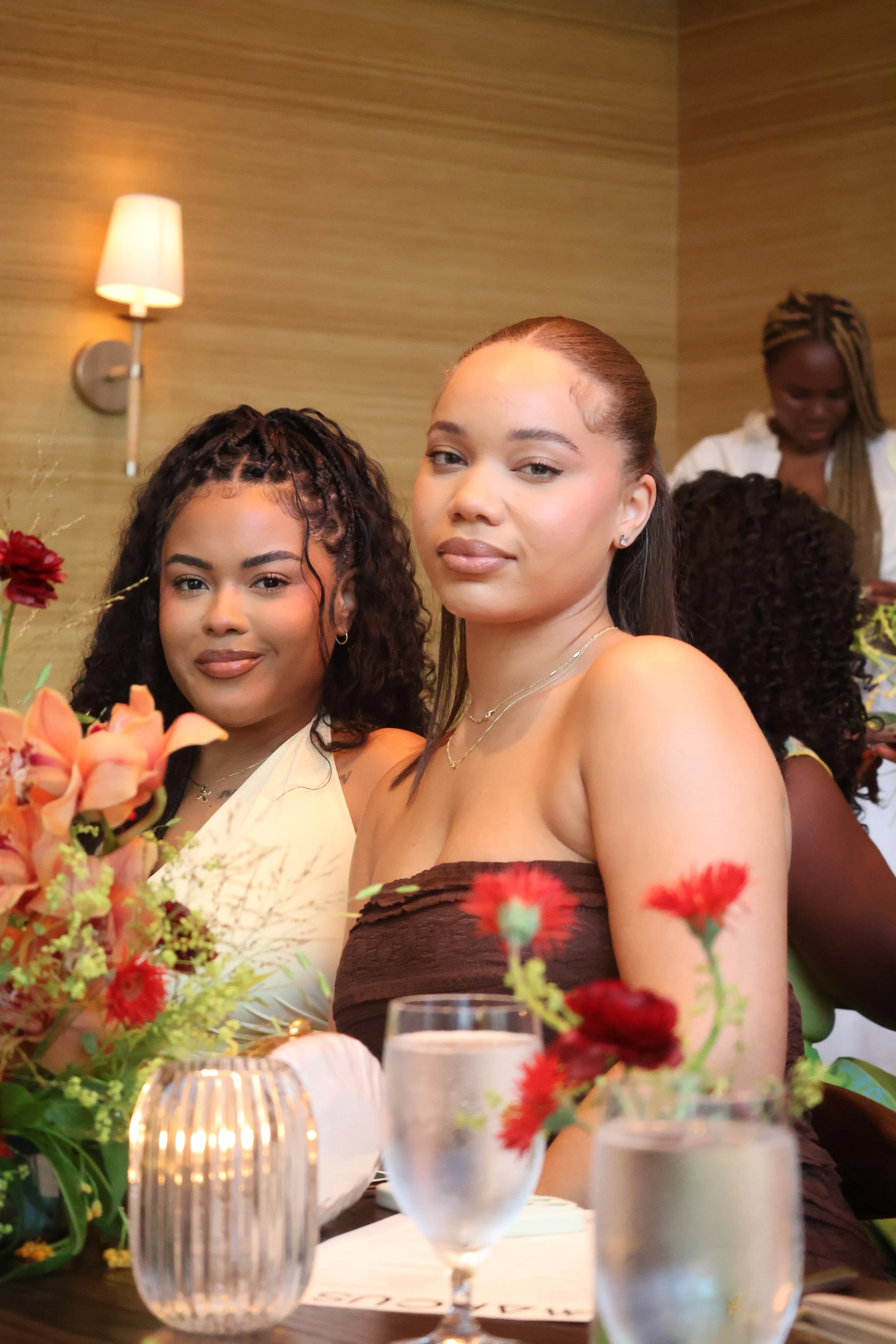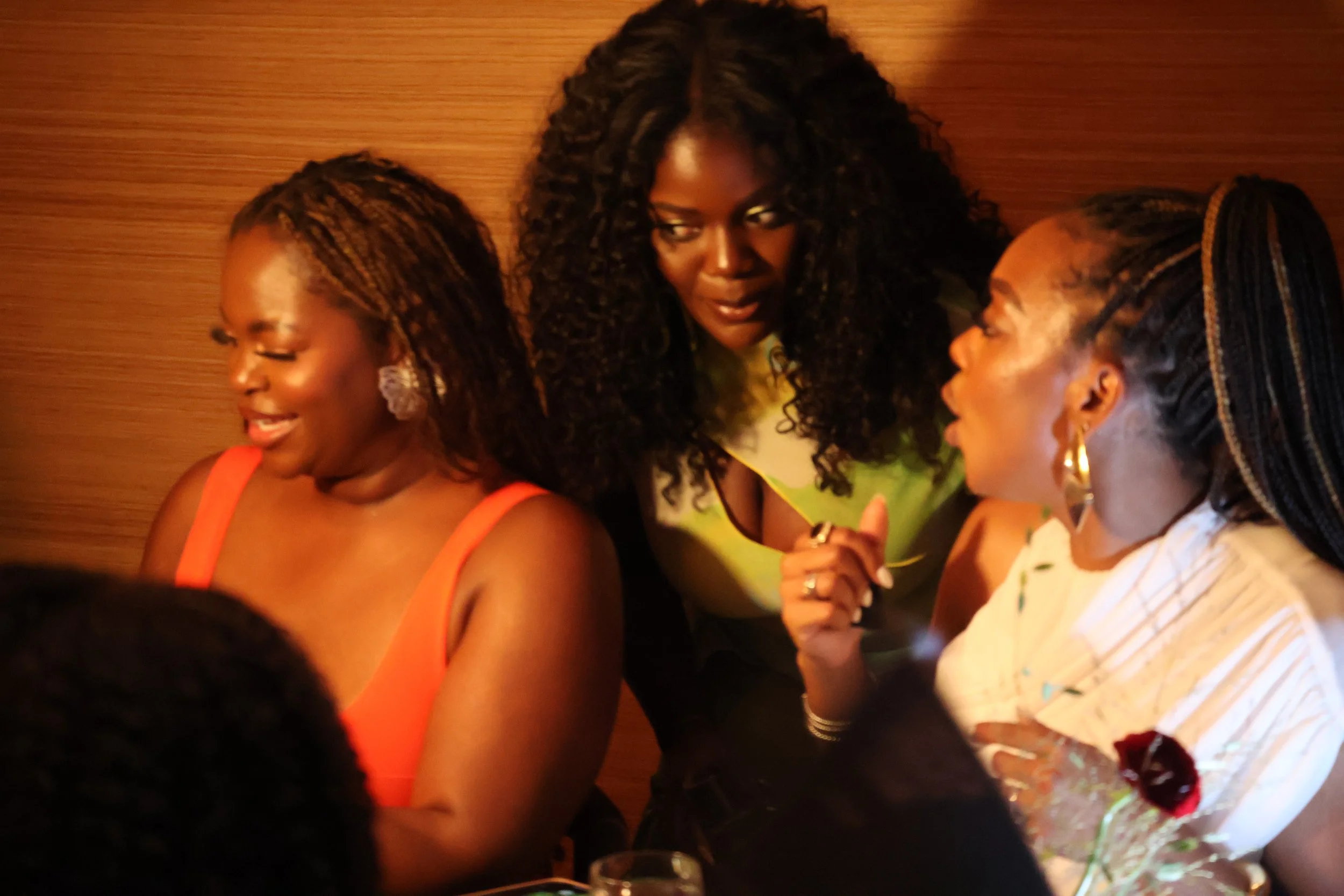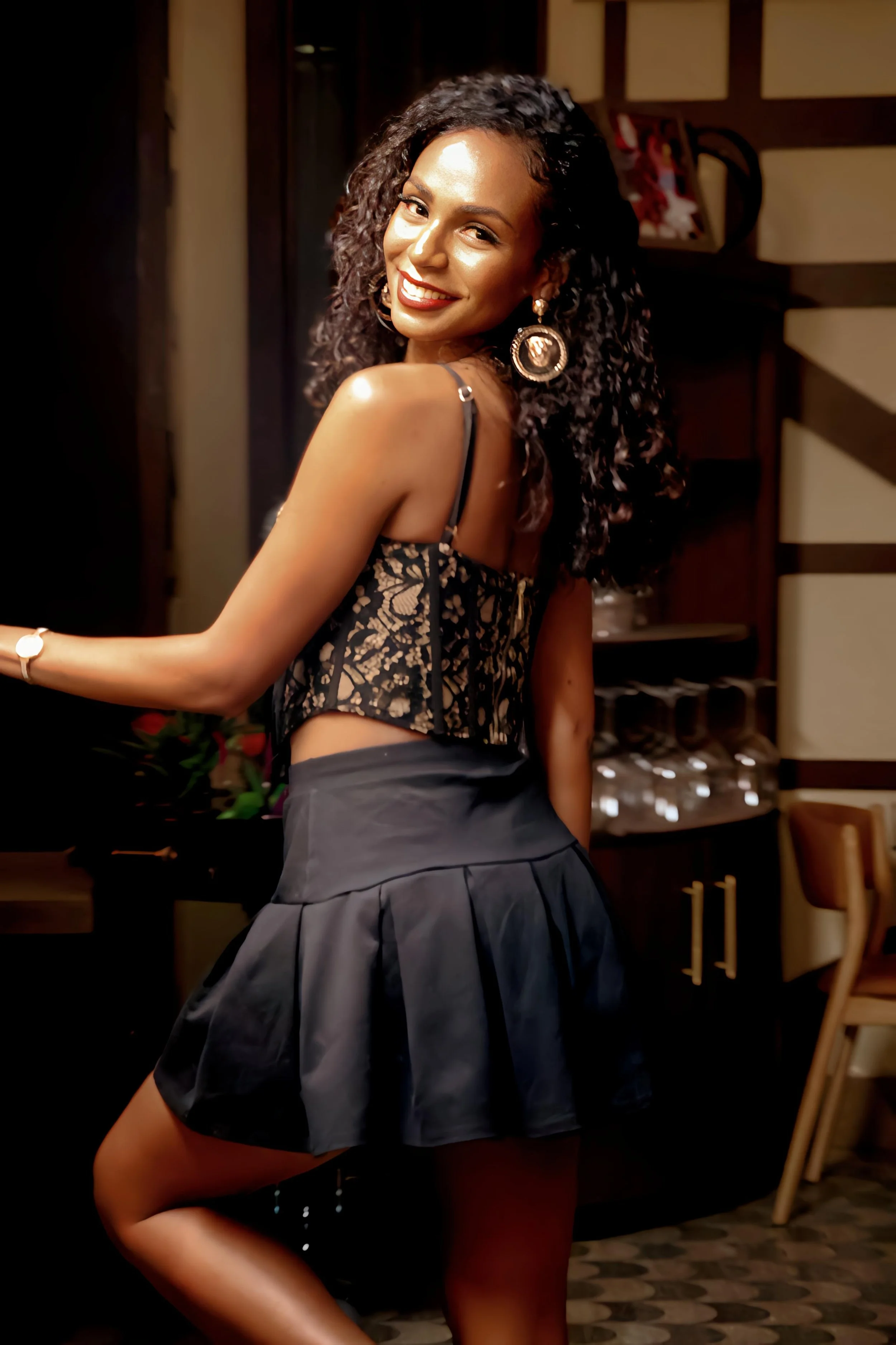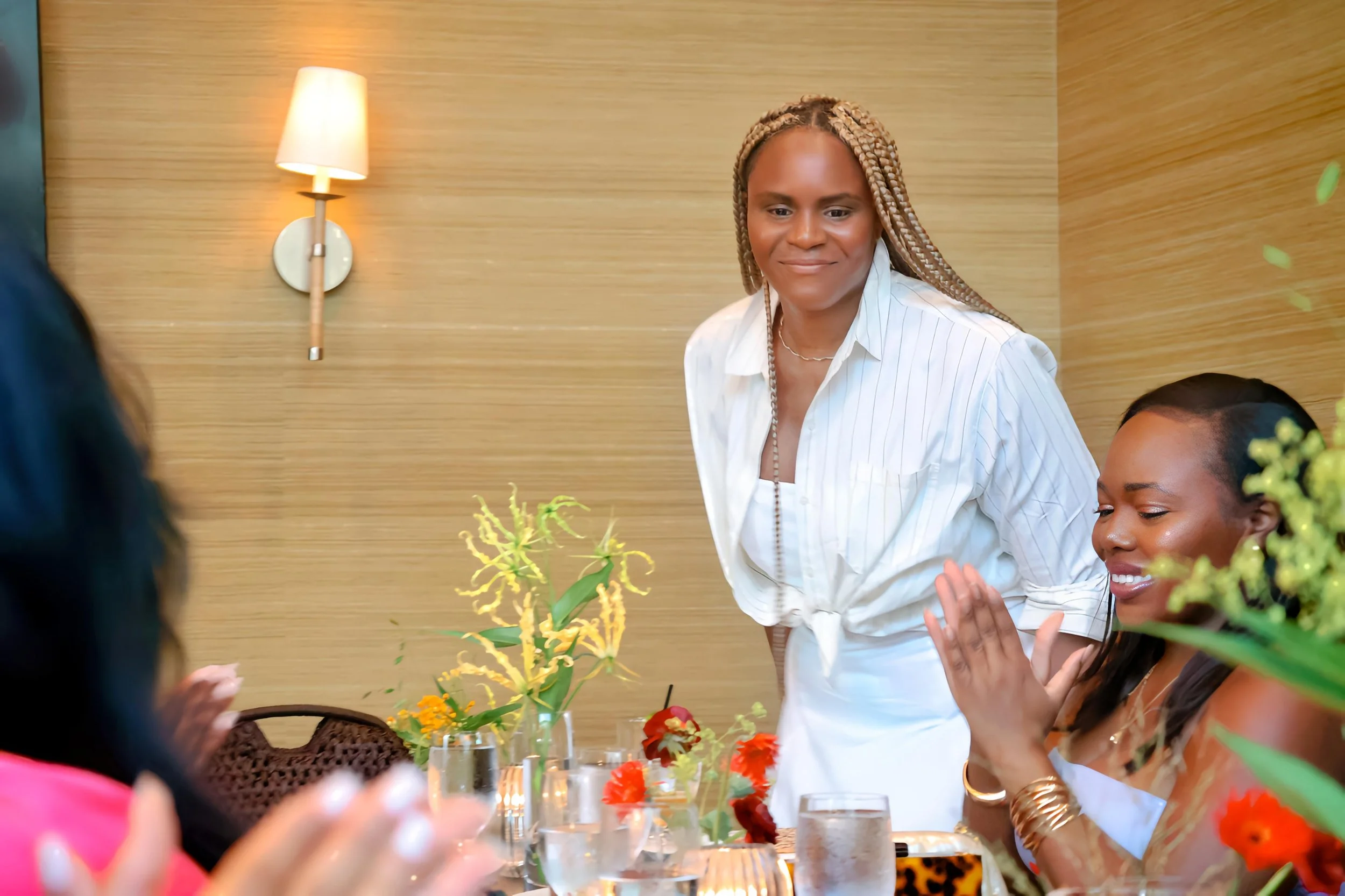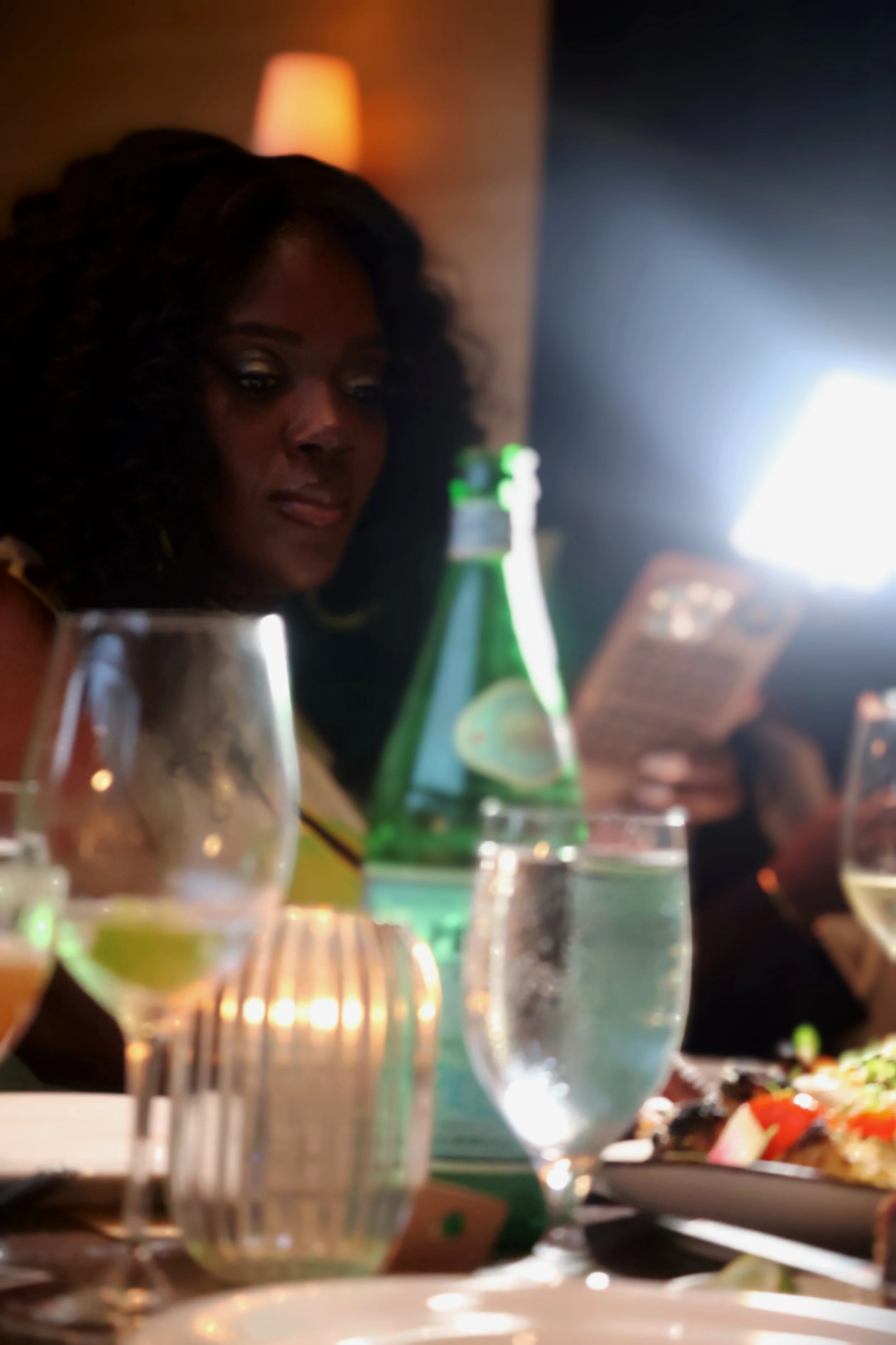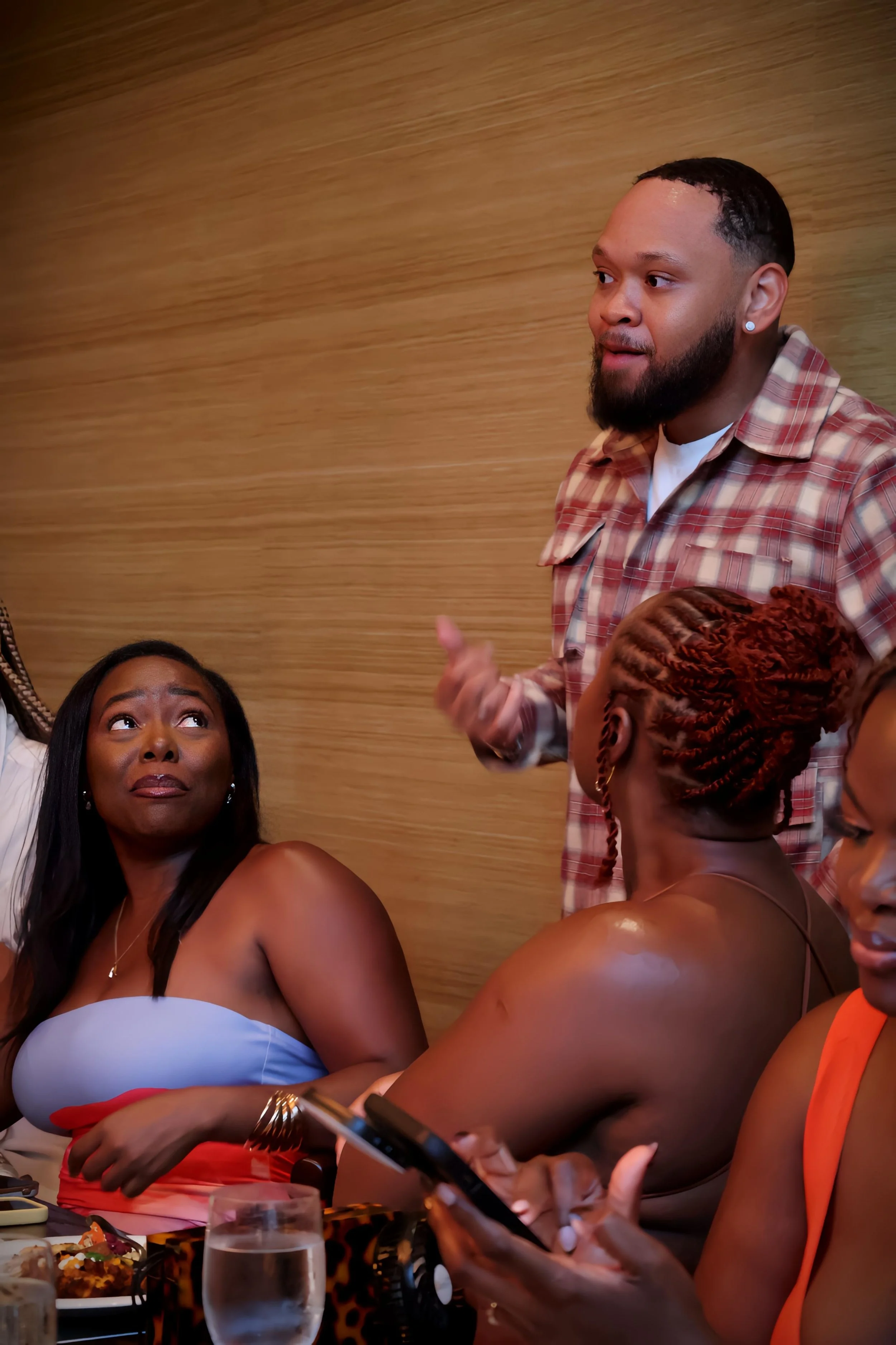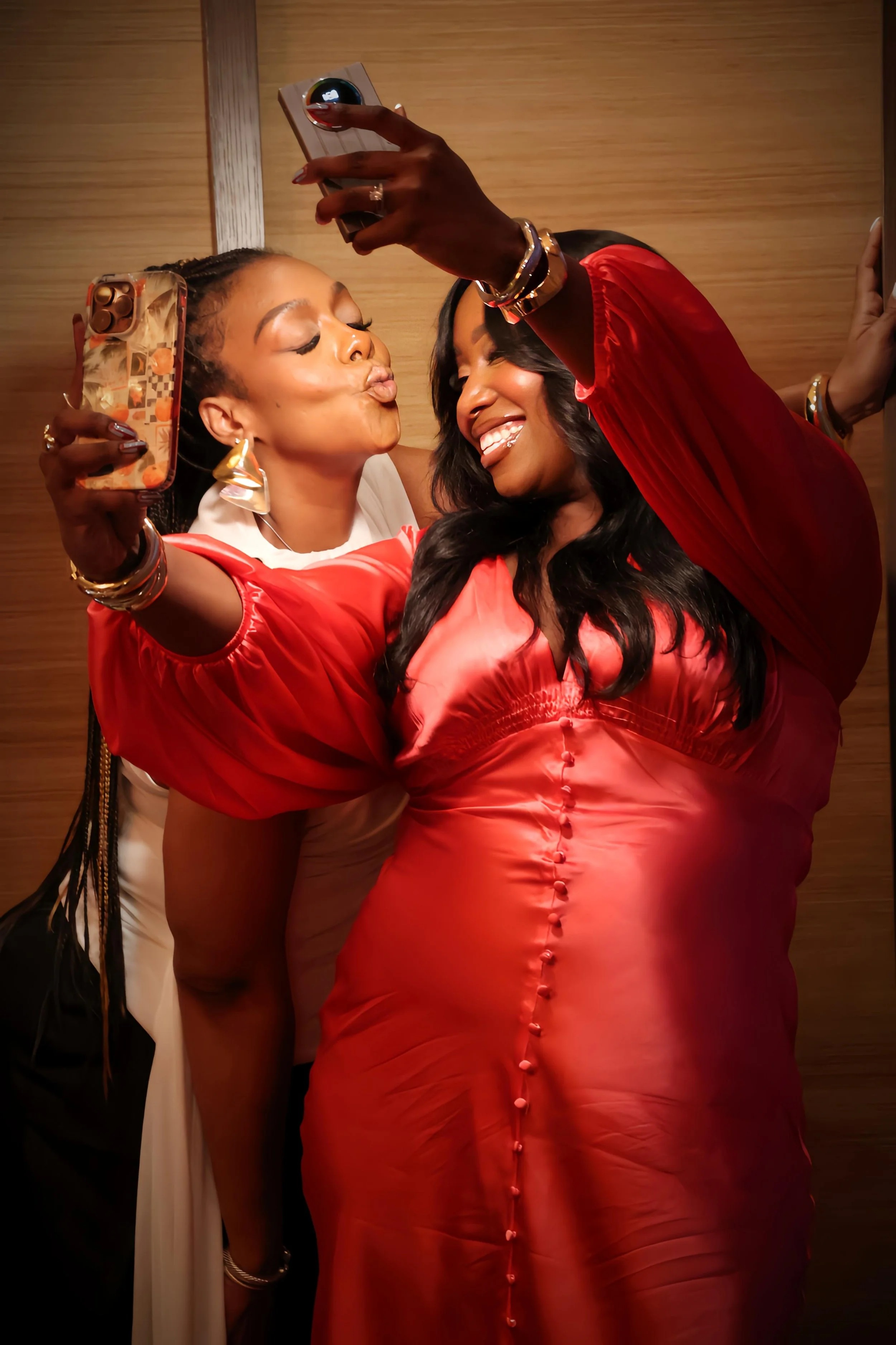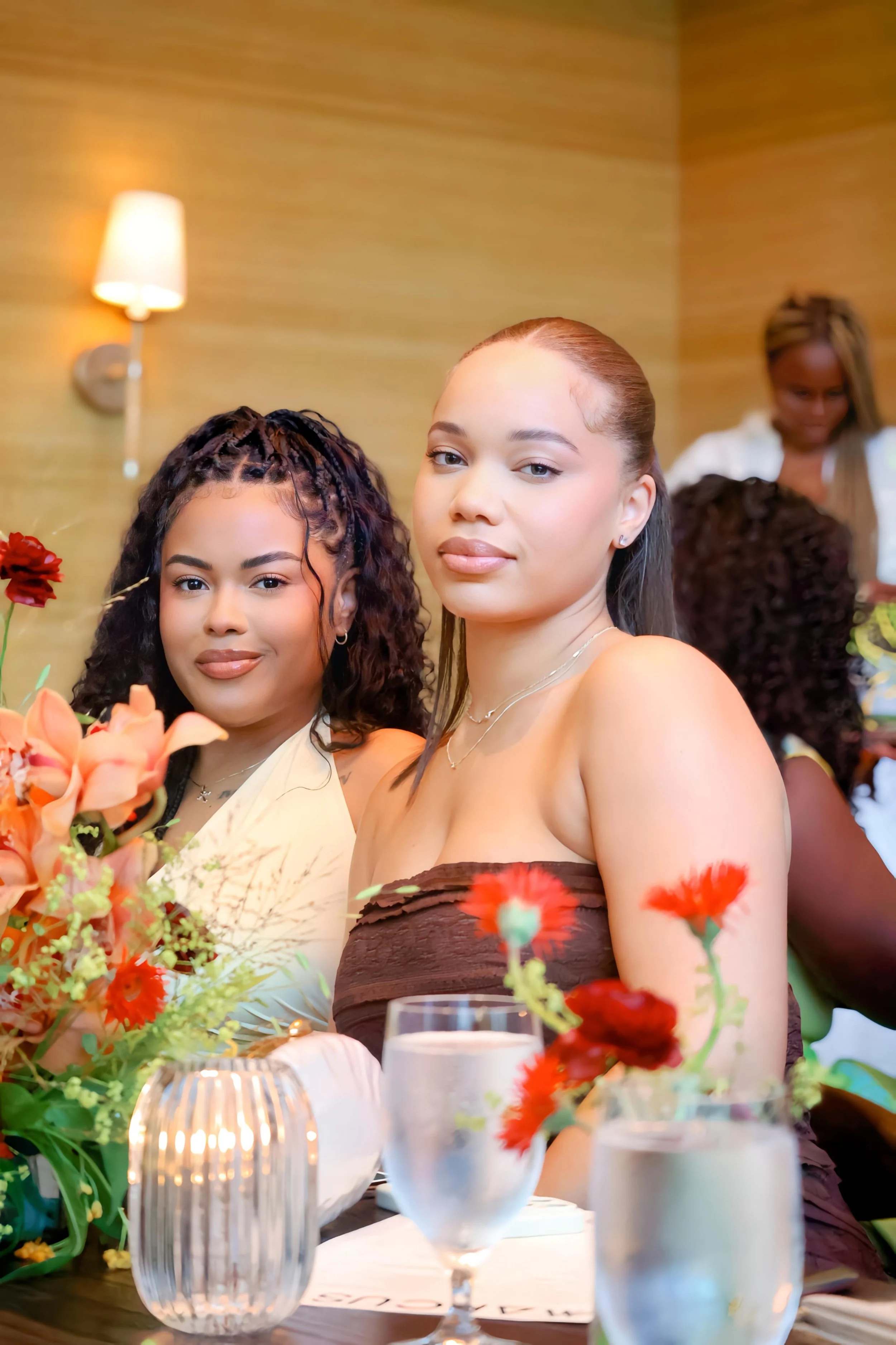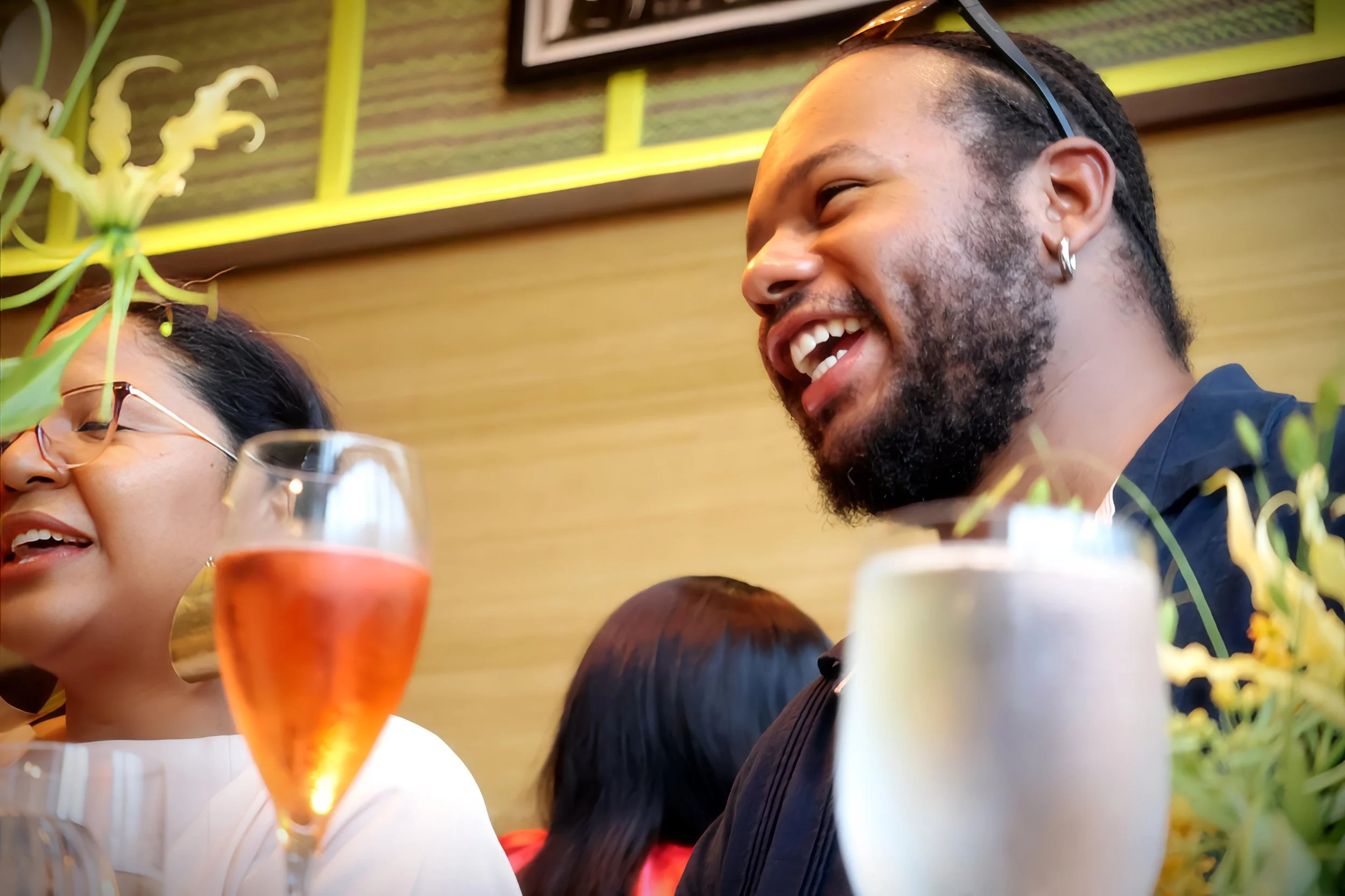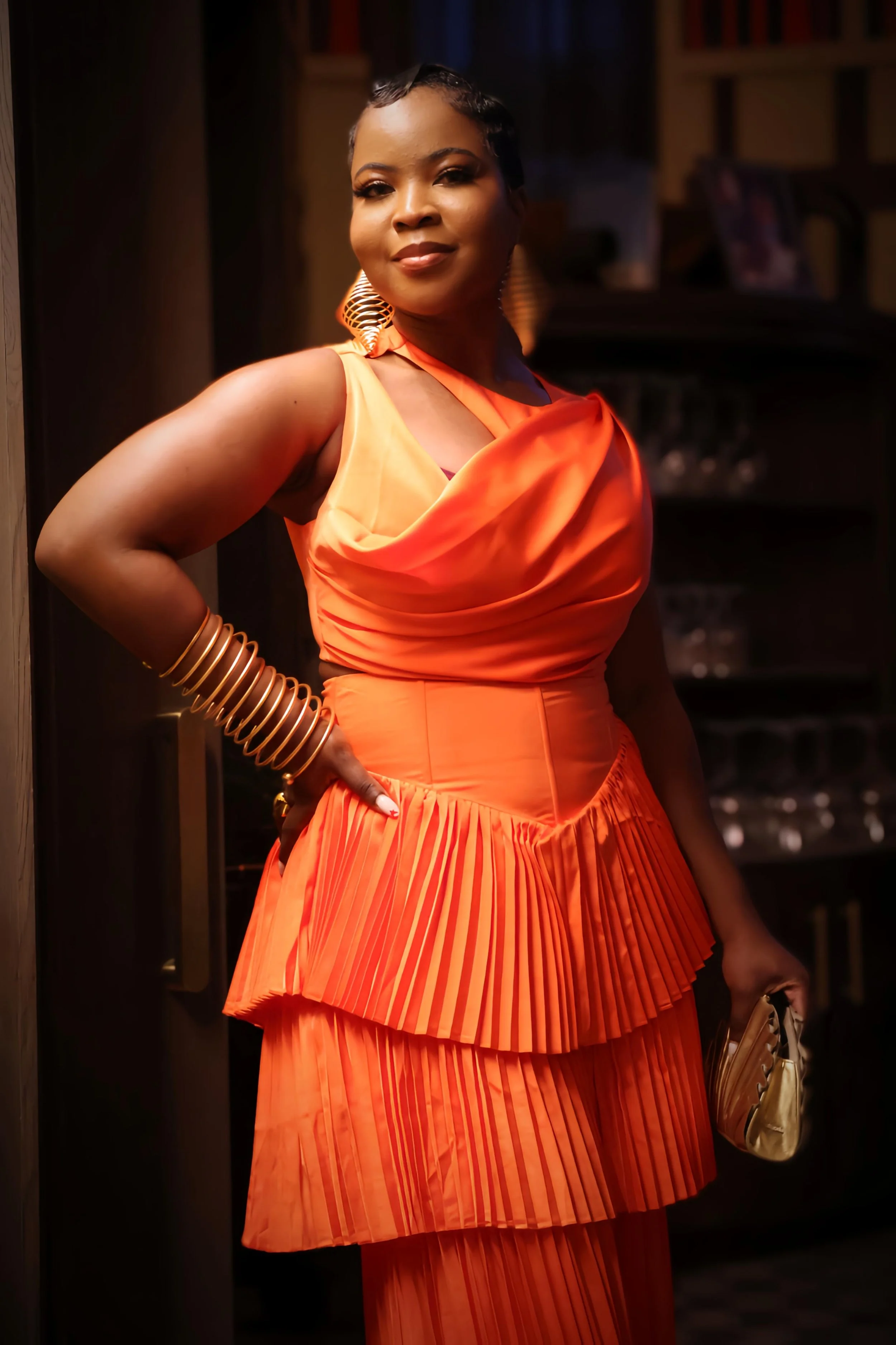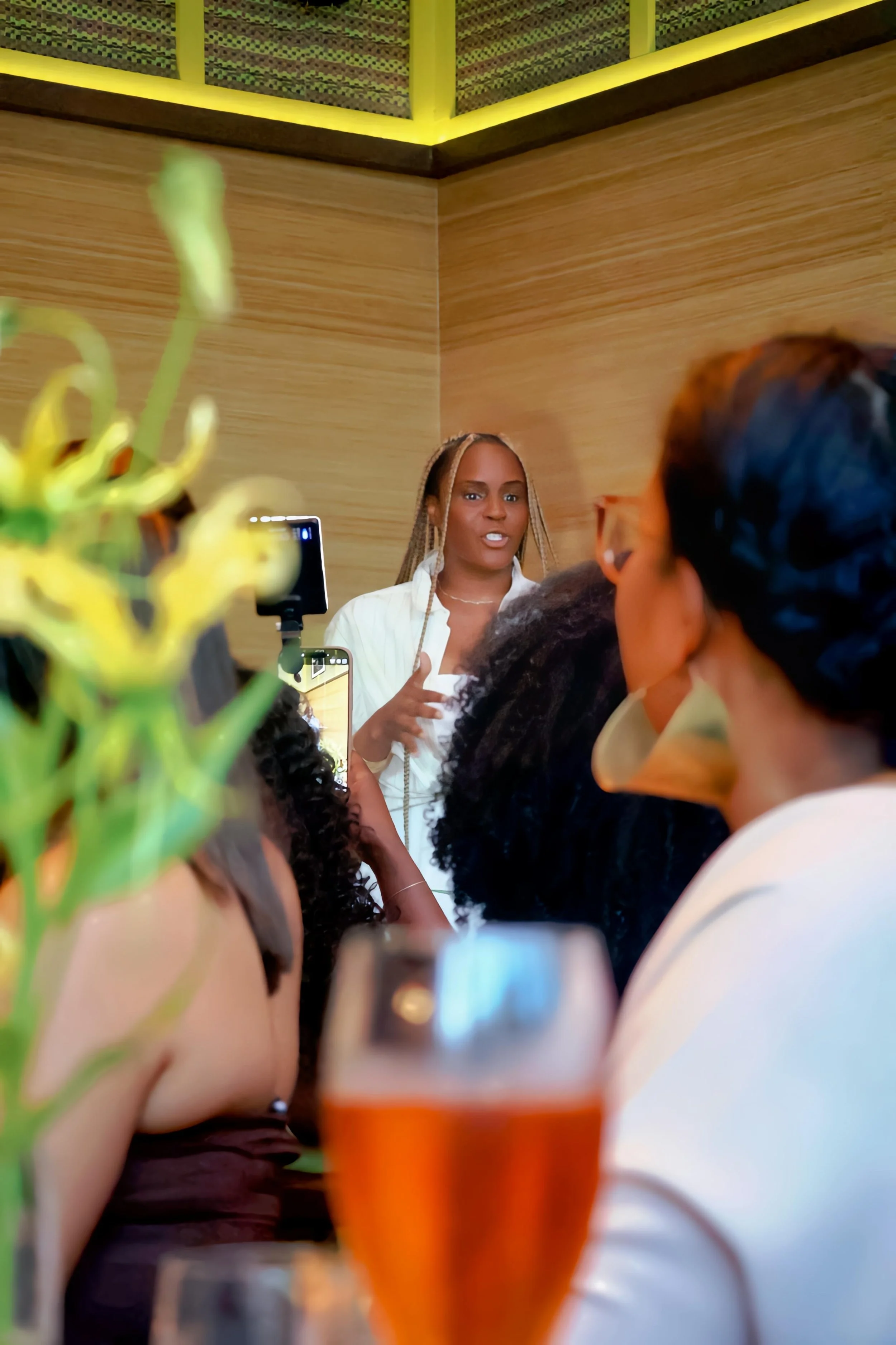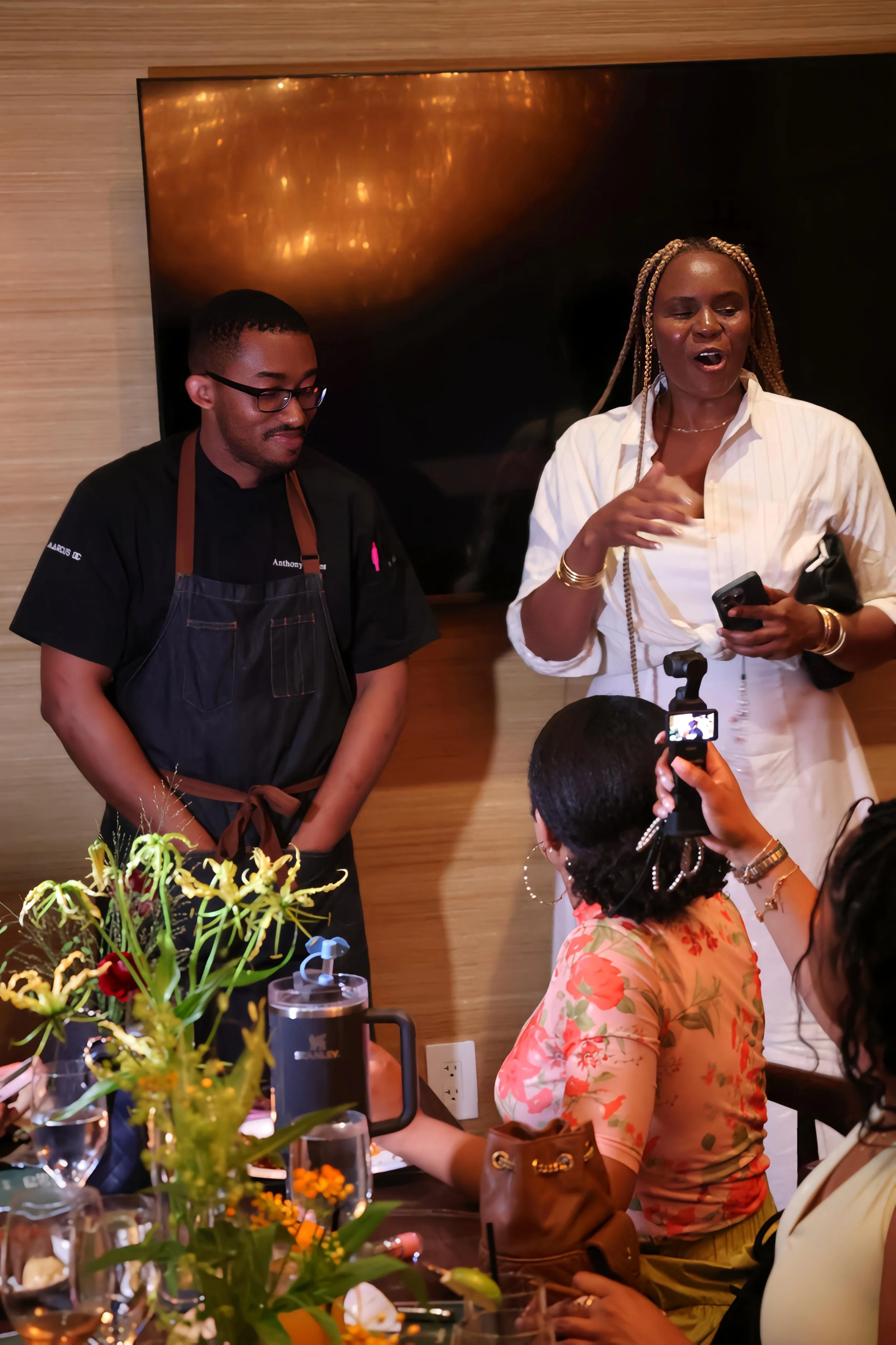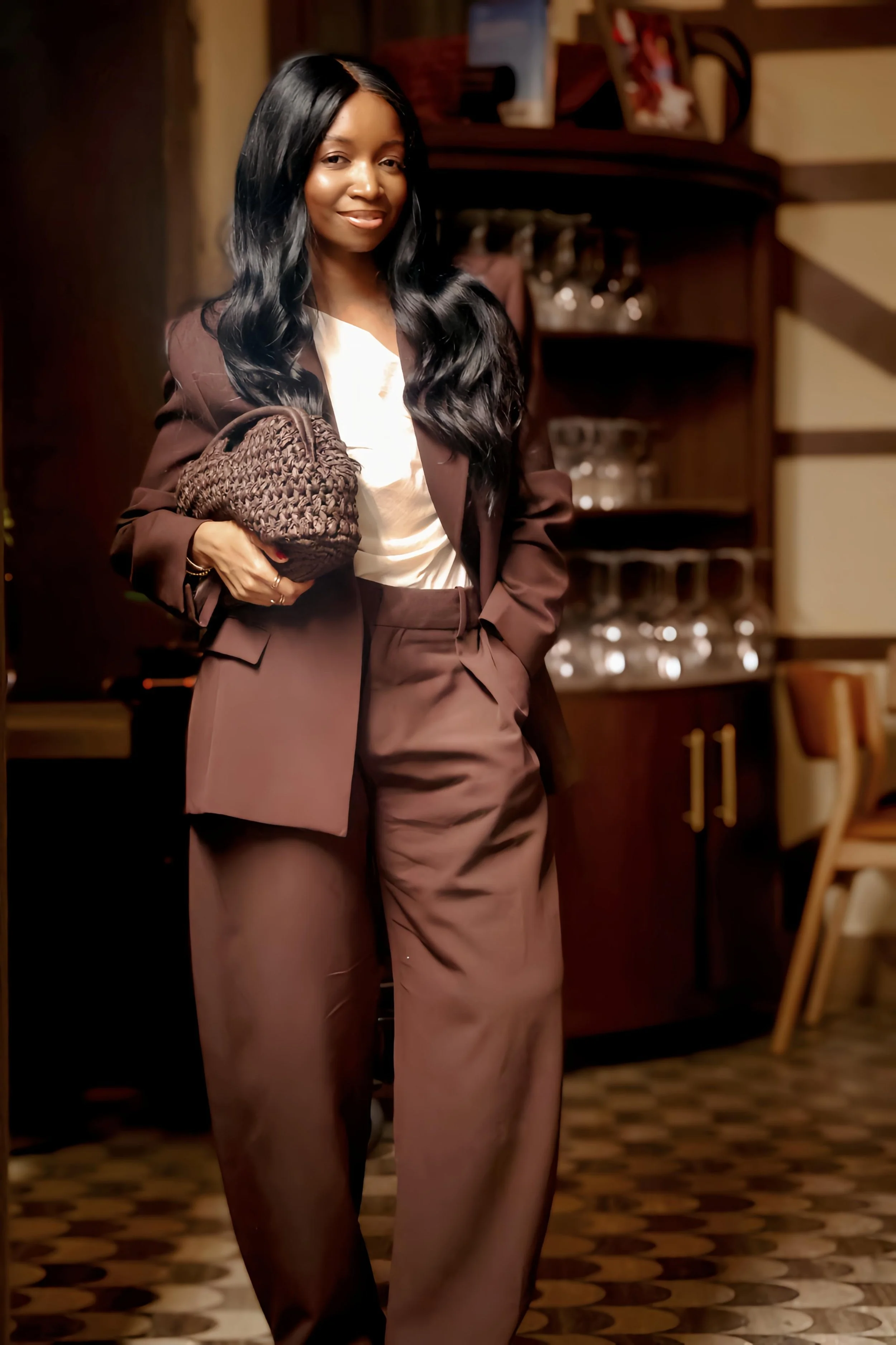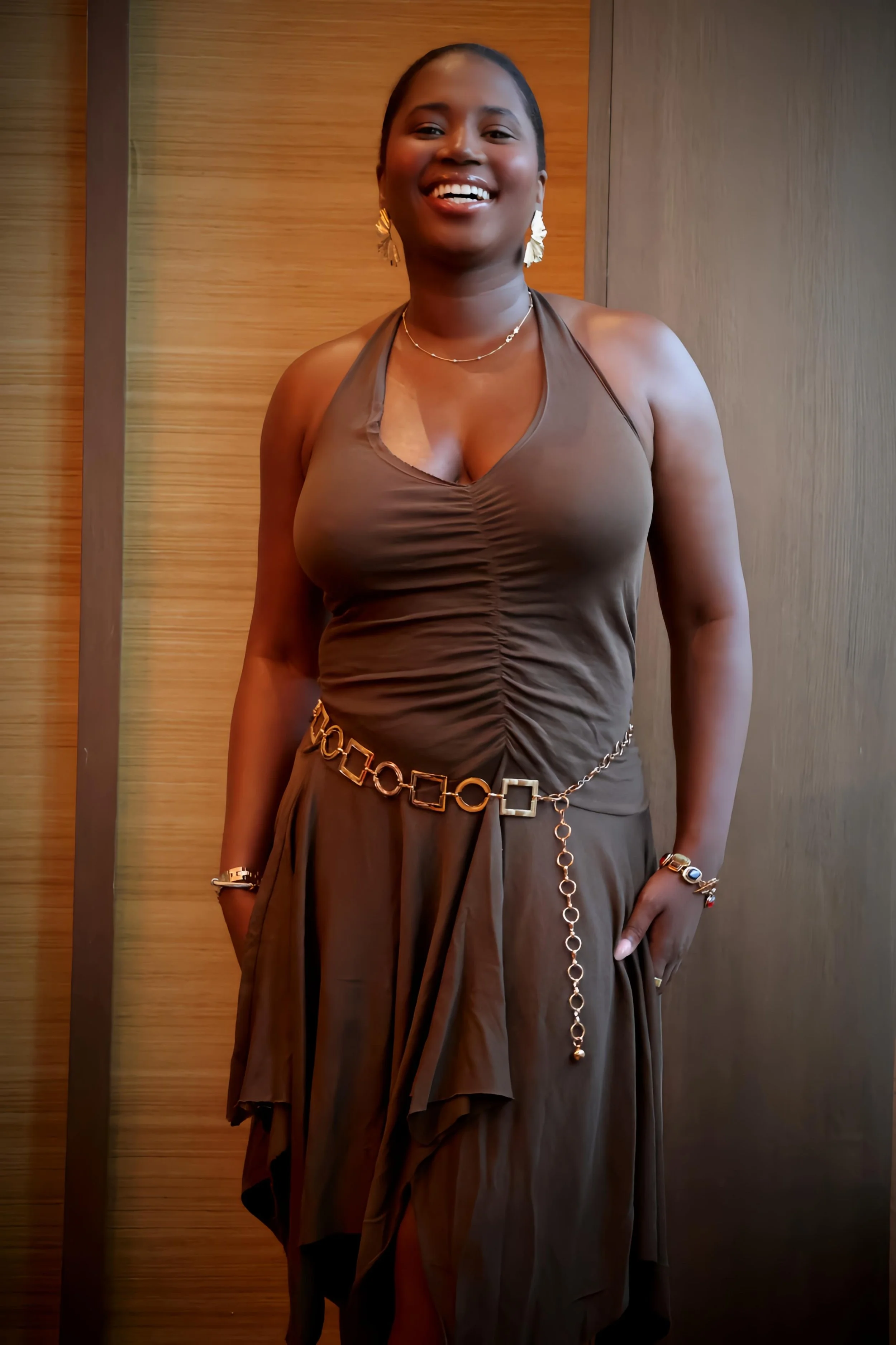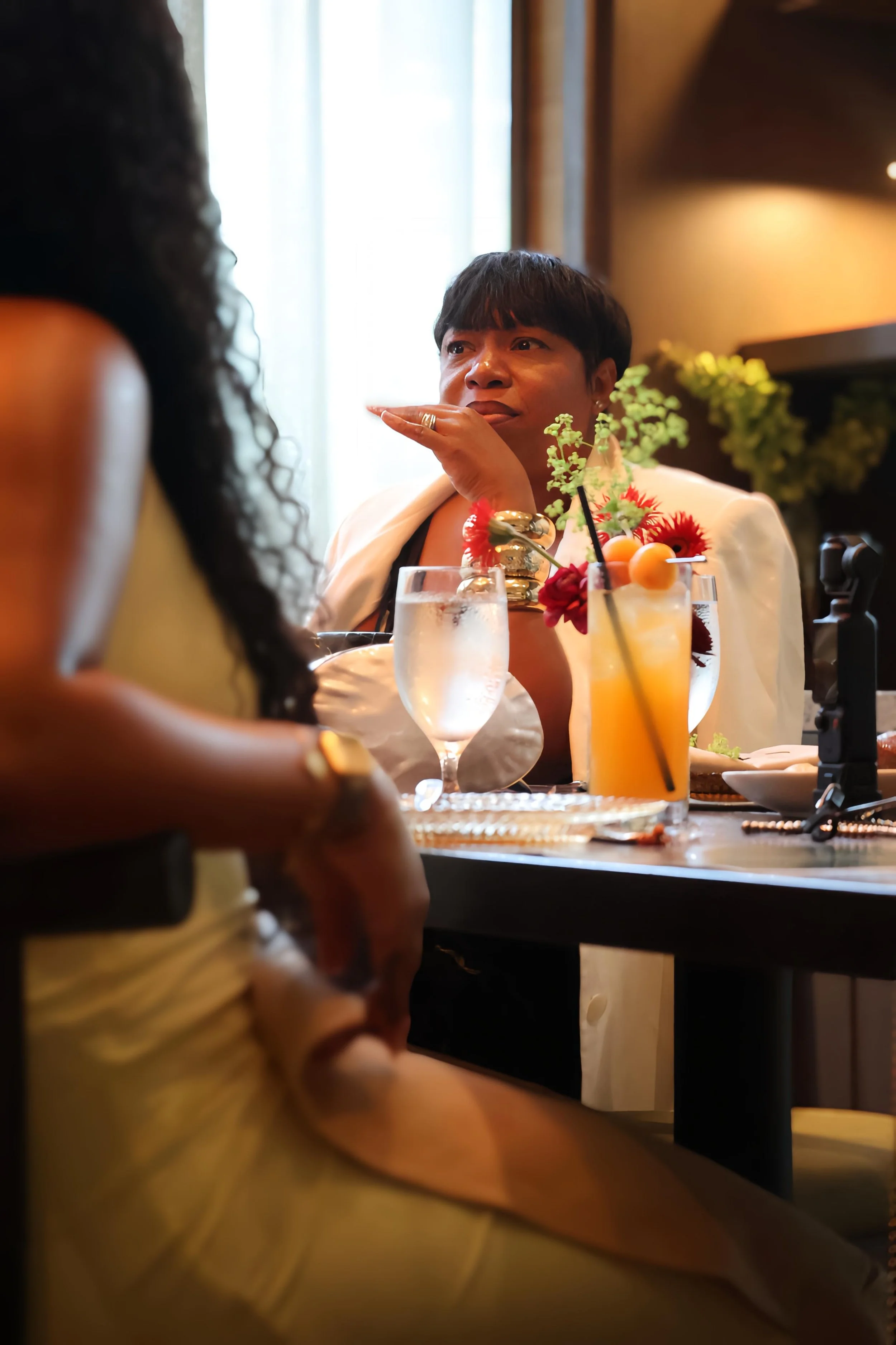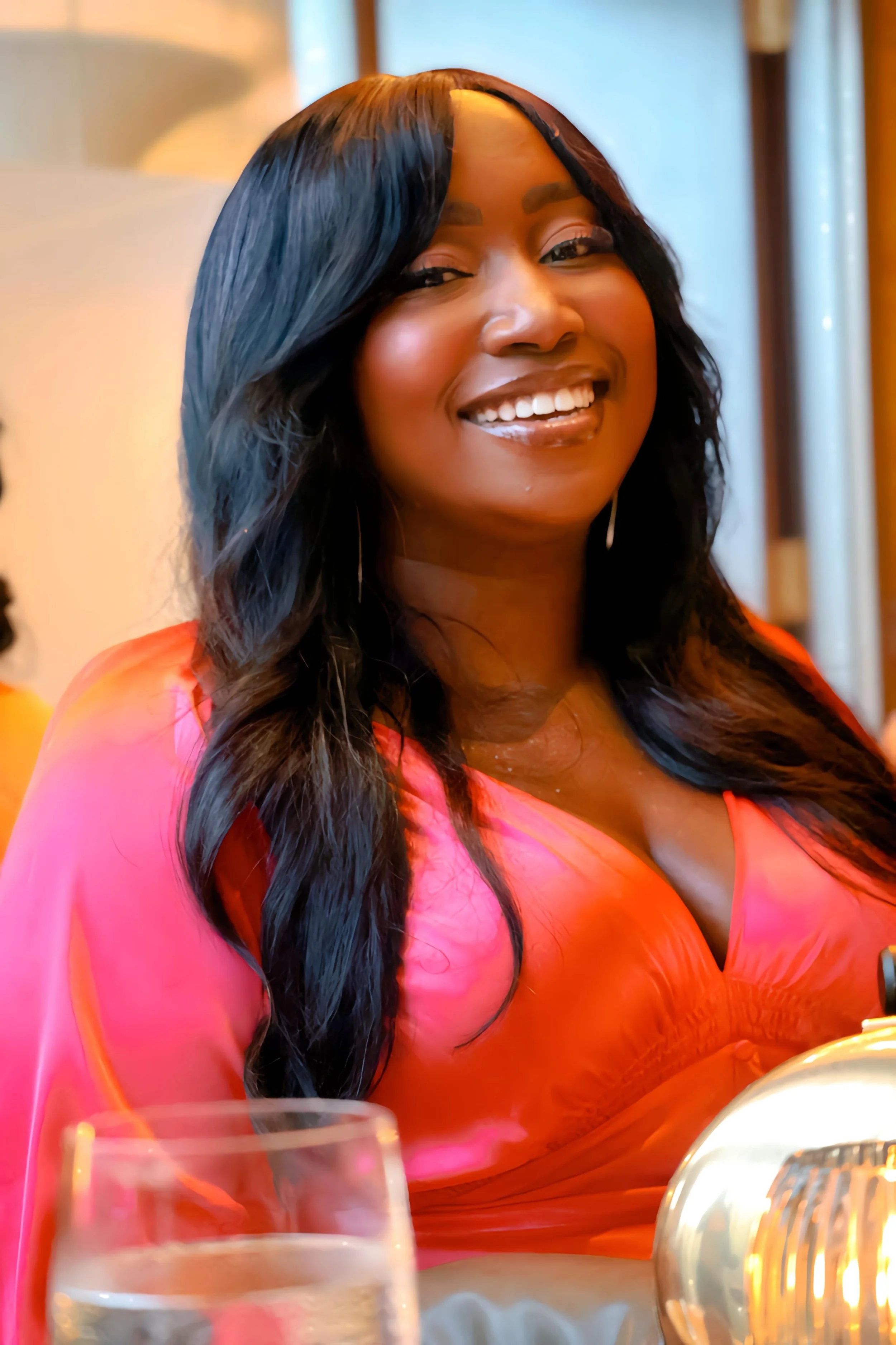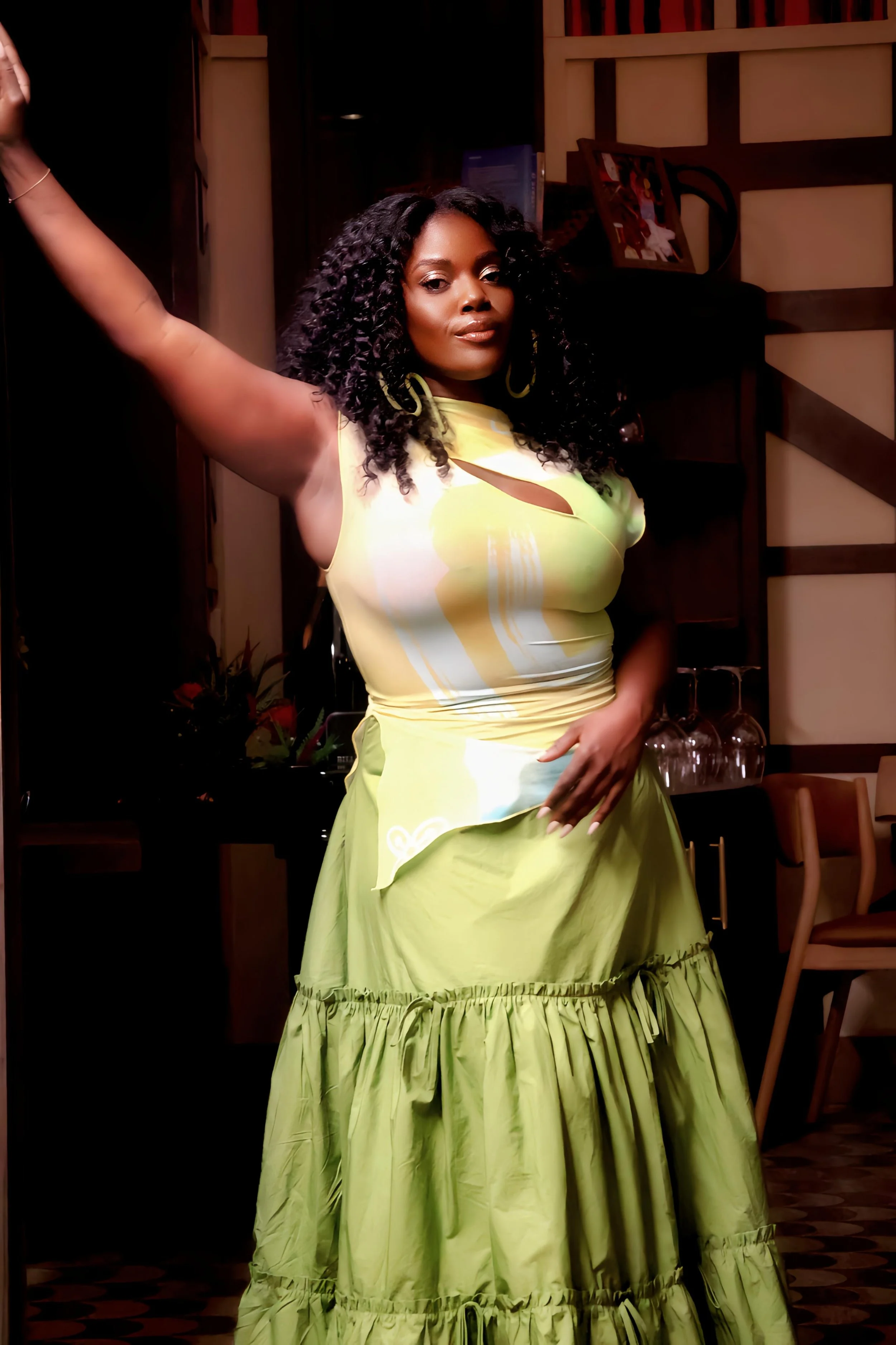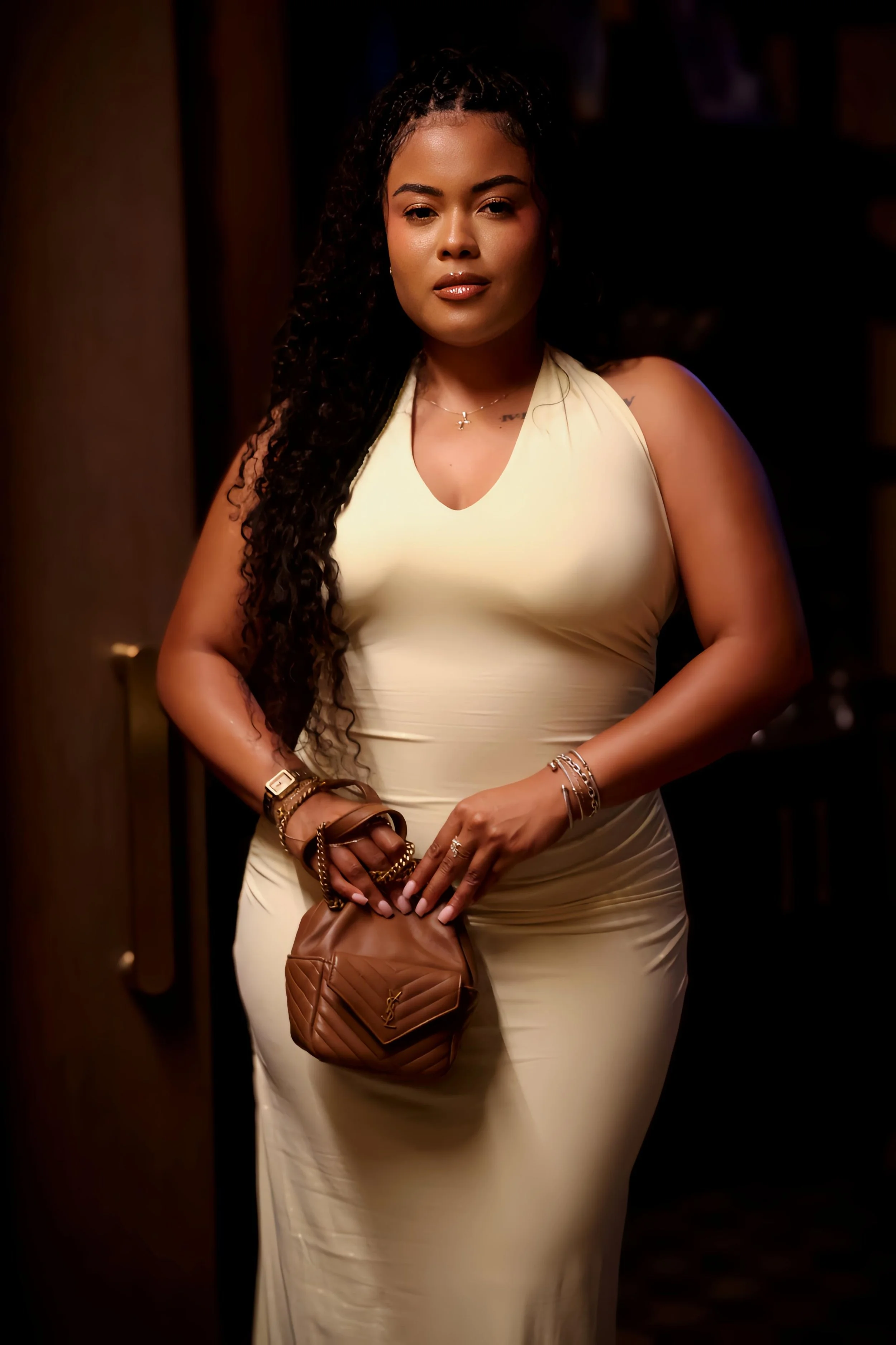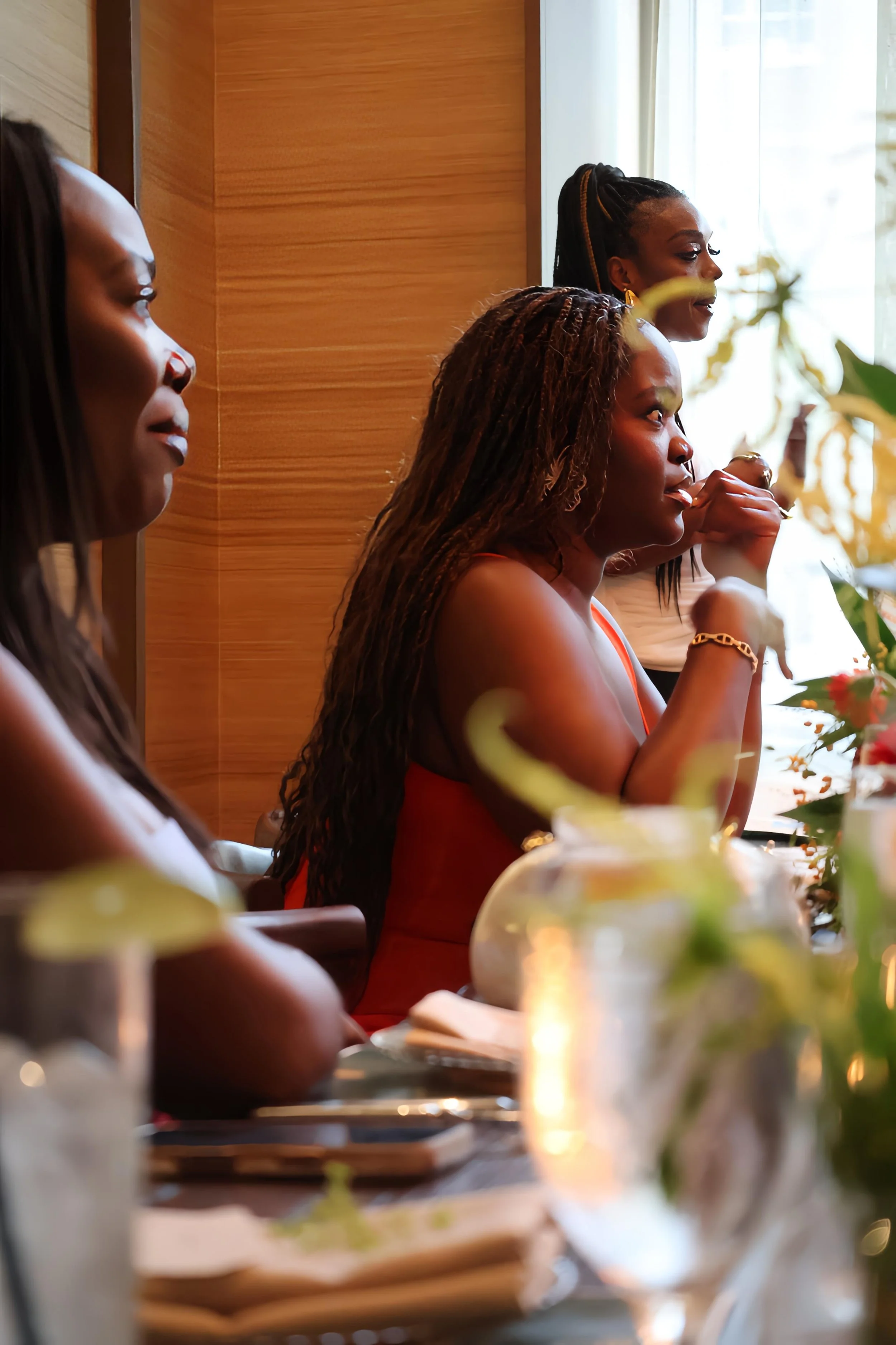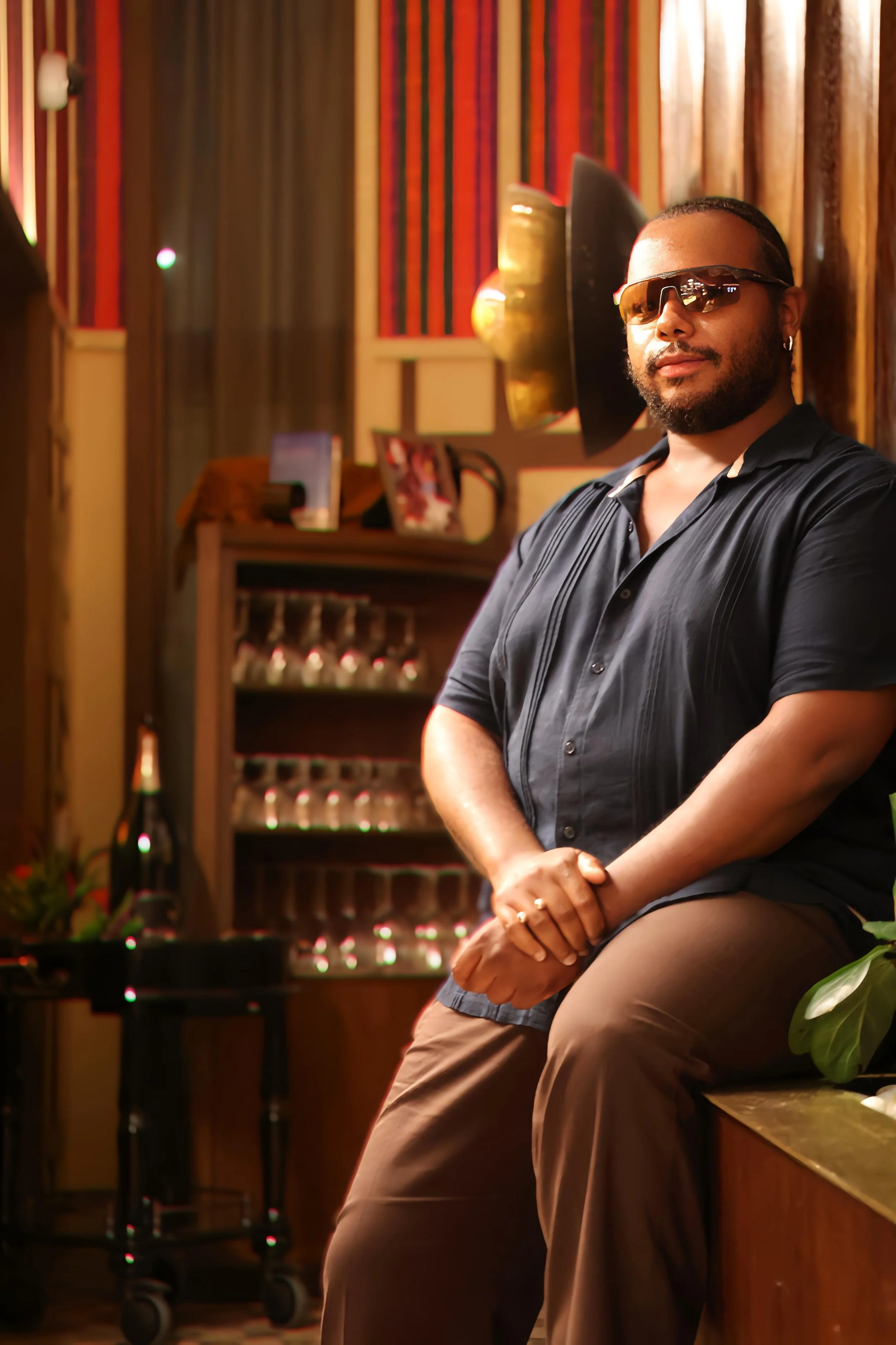Outside > Algorithm: Where the Beauty Community Actually Lives
Chicago, D.C., and Atlanta proved the beauty community isn’t a post—it’s people, together.
We took The Black Beauty Club on the road, Chicago, D.C., Atlanta, and the girls said, “Say less.” Three cities, packed rooms, 30+ creators, and nearly a hundred guests at every stop. IRL is the engine; online is the loudspeaker. The room makes the love, the feed carries the echo. In other words, the internet didn’t lead; it followed, and it followed loudly: ~4M impressions and ~115K real interactions across the run. That’s more than “awareness”—that’s a pulse.
Chicago: We Didn’t Discuss Beauty, We Defined It
Chicago didn’t give us a panel; it gave us a lineage. With Kristen Noel Crawley (KNC Beauty), Abena Boamah (Hanahana Beauty), and Fashion Fair Cosmetics in the room, we weren’t trading hot takes; we were tracing a bloodline from Bronzeville salons and Ebony Fashion Fair runways to today’s shelves. We named what Chicago has always exported to the world: Black beauty with taste and discipline.
We also got precise about “community.” In Chicago, a historic Black beauty capital, community isn’t a crowd, it’s an ecosystem: founders who build deliberately, pros who teach fluently, retailers that still let you touch and try, and customers who expect receipts, not rhetoric. If you’re a brand that claims culture, you show up here first, in the rooms that made the blueprint, and you fund the boring parts that actually build advocacy, creators who teach (and earn), and follow-through that outlasts a post. Chicago isn’t a stop on a tour; it’s the standard.
Washington, D.C., Hair Politics, Practiced (at The Ned)
At Ned’s Club DC, Nana-Sentuo Bonsu, Mimi Sillah, and Adaeze Okeke traded platitudes for practice. We didn’t debate trends, we traced power: how Black beauty has been legislated, marketed, surveilled, and sold back to us from tignon laws to “professional” dress codes, from algorithmic filters that sand down melanin to wellness fads that pathologize our bodies.
We named the time-and-money tax of textured hair and the way standards of “clean,” “polished,” and “appropriate” still patrol braids, locs, edges, nails, and even “no-makeup” makeup. The call wasn’t for nicer memos; it was for deeper political stewardship, data sets and testing that center textured hair and deeper tones, legislation that moves beyond symbolism, retail and media systems that shift from permission to celebration, and cultural safety built into classrooms, boardrooms, and beauty aisles.
Atlanta — Hair Freedom, For Real
We closed the summer in Atlanta turned into a case study in textured-hair engineering. Tiarra Monet, Candace Mitchell of Myavana Haircare, and Tomi Talabi sat down to talk about what hair freedom really means, and then we put it into practice. We asked guests to describe their hair in one word (personality, not pattern), to name the style they’ve always wanted to try and why it’s waited, and to tell the truth about the natural-hair era, how it sometimes built a new hierarchy (looser vs. tighter), and how to keep a routine without feeling graded. With Shark Beauty, the hands-on experience proved the point: when tools are engineered for coils, discovery becomes destiny. 80%+ of attendees were new to the brand, and the energy didn’t spike and fade; it held. Everyone got the Shark Glam.
The black beauty community is specific, not fickle. They’re reaching for Fenty, Danessa Myricks, NARS, Topicals, with reverent love for Ami Colé and deep respect for Fashion Fair. They trust Jackie Aina (the mother), Eni (EniGivenSunday), Uche Natori, Brooke DeVard, plus derms, estheticians, and stylists who speak fluent “routine.” They buy where the testers live with Sephora and Ulta at the center, supplemented by Black-owned boutiques and the occasional Prime refill. Many split channels evenly; plenty still go mostly in-store. Translation: put it in their hands.
So yes, the numbers slapped. But the story was the hush before a perfect shade lands, the nod when a stylist explains heat settings for coils, the way strangers swap edge-control recipes like family secrets. That’s culture. That’s community. And if you’re a brand that claims either, here’s the memo: community isn’t a word you post; it’s a room you fund. Ask Shark Beauty in ATL. Ask the ShopMy trails in Chicago. Showing up IRL didn’t just work; it built advocacy you can measure and love you can feel.
Outside > Algorithm. See you in the room.

